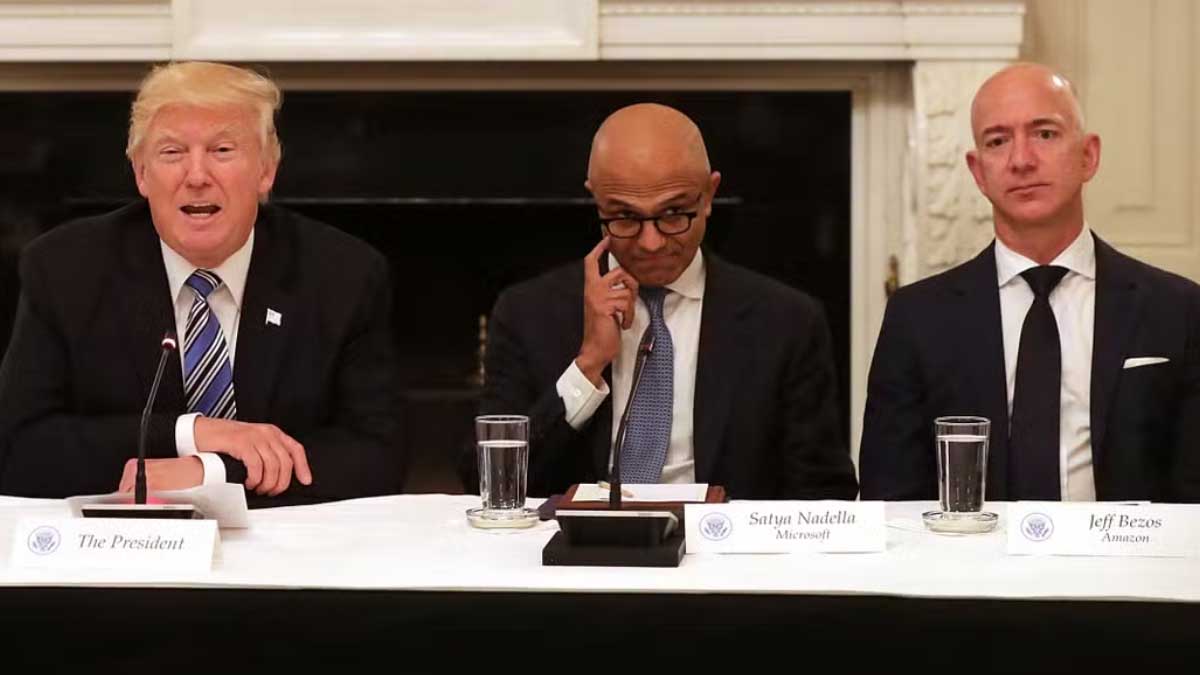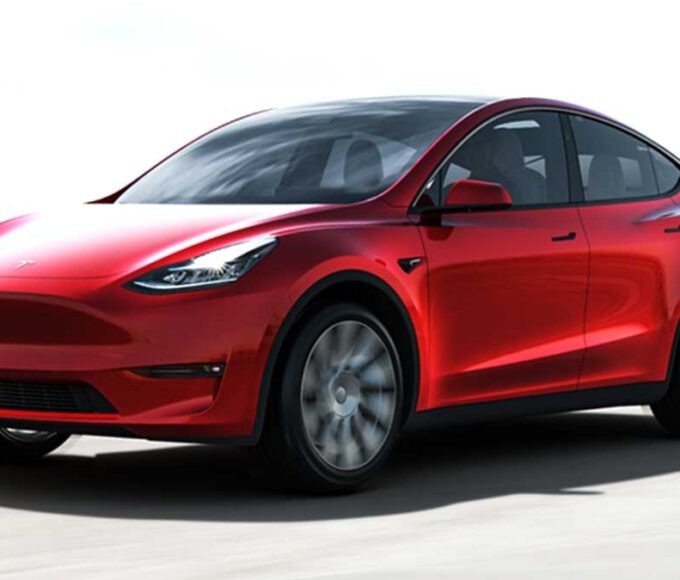- Home
- Billionaires
- Investing Newsletters
- 193CC 1000
- Article Layout 2
- Article Layout 3
- Article Layout 4
- Article Layout 5
- Article Layout 6
- Article Layout 7
- Article Layout 8
- Article Layout 9
- Article Layout 10
- Article Layout 11
- Article Layout 12
- Article Layout 13
- Article Layout 14
- Article Sidebar
- Post Format
- pages
- Archive Layouts
- Post Gallery
- Post Video Background
- Post Review
- Sponsored Post
- Leadership
- Business
- Money
- Small Business
- Innovation
- Shop
Recent Posts
Bezos Denies Musk’s Election Claim in Latest Feud

Elon Musk, the world’s richest individual, ignited a fresh flare-up in his ongoing feud with Jeff Bezos, the third-richest person globally, when he claimed that Bezos had advised people to sell stock in Musk’s companies ahead of the 2024 presidential election. Musk’s allegation was quickly refuted by Bezos on Musk’s own social media platform, X, as the latest episode in their high-profile rivalry.
Musk’s claim, made early on Thursday, suggested that Bezos had allegedly told others that Donald Trump, now President-elect, would “for sure” lose the election. Musk did not provide any specific details about how he learned of these comments, such as who told him or where Bezos supposedly made these statements. The assertion came as part of Musk’s ongoing criticism of Bezos, furthering the tension between the two tech giants.
According to Musk, Bezos allegedly went beyond predicting Trump’s loss and suggested that people should sell their holdings in Musk’s major companies, including Tesla and SpaceX. Musk, whose Tesla is valued at around $1 trillion and SpaceX at approximately $250 billion, implied that Bezos believed Musk’s public support for Trump would harm the valuation of his companies.
In his post on X, Musk said that Bezos had recommended people “sell all their Tesla and SpaceX stock.” This public claim led to an immediate response from Bezos, who denied the allegation outright. “Nope. 100% not true,” Bezos replied on X, categorically refuting Musk’s assertion. Musk responded with a brief, “I stand corrected,” seemingly closing the dispute for the moment.
While Musk’s claim was unsubstantiated, the timing of his remarks and the history of their rivalry lend context to the exchange. Musk’s accusation followed a claim he made about “learning” the alleged information on Wednesday during a visit to Trump’s Mar-a-Lago resort. Musk, known for his sometimes controversial statements, has a history of making exaggerated or inaccurate claims. This particular incident added to the list of disputes between Musk and Bezos, which have been simmering for years, particularly over their positions as tech titans and their competing ventures in space.
Bezos, for his part, has publicly supported Trump on various occasions. During the lead-up to the 2020 election, Bezos did not make any public statements against Trump, and he did not join the ranks of the more than 80 billionaires who backed Vice President Kamala Harris in her presidential bid. In fact, Bezos took the unusual step of reportedly killing his Washington Post newspaper’s planned endorsement of Harris just one week before the election. Bezos also praised Trump’s political resilience, commenting in July that Trump “showed tremendous grace and courage under literal fire” after a violent attempt on his life. Following Trump’s election win in 2020, Bezos called it an “extraordinary political comeback,” showing a level of respect for Trump’s achievements that belies the narrative Musk suggested.
Musk, who has long been a polarizing figure, is currently the wealthiest person in the world, with an estimated net worth of around $317 billion, a significant margin above Bezos, who is valued at $217 billion. Musk’s wealth is primarily tied to his holdings in Tesla and SpaceX, while Bezos’ fortune is largely derived from his stake in Amazon, the $2.1 trillion e-commerce giant that he co-founded and still leads as executive chairman. While Bezos continues to hold considerable wealth, Musk’s rapid rise to the top spot on the billionaire list has added fuel to their ongoing rivalry.
One of the most memorable jabs in their relationship occurred back in 2021 when Musk surpassed Bezos as the world’s richest person. Musk took the opportunity to mock Bezos, saying he was sending a giant statue of the number “2” and a silver medal to Bezos, highlighting the shift in the billionaire rankings. Musk’s playful taunt was part of a broader, often-public back-and-forth between the two, with much of the tension stemming from their respective roles in the private space race. Musk’s SpaceX and Bezos’ Blue Origin are both vying for lucrative government contracts, further intensifying their competition in the aerospace industry.
Musk, in particular, has made a number of sharp comments about Bezos, including a 2021 remark to the Financial Times, where he suggested that Bezos should focus more on his space ambitions with Blue Origin and less on his personal life. Musk famously quipped, “He should spend more time at Blue Origin and less time in the hot tub,” referencing Bezos’ recreational activities. While Musk is more vocal in criticizing Bezos, Bezos has also taken subtle shots at Musk. In 2019, Bezos dismissed Musk’s long-term vision of colonizing Mars, offering a pointed remark about the challenges of living on the Red Planet. “My friends who want to move to Mars? I say, ‘Do me a favor, go live on the top of Mount Everest for a year first, and see if you like it — because it’s a garden paradise compared to Mars,’” Bezos said, challenging Musk’s optimistic view of space colonization.
Despite their rivalry, the two billionaires share a complex relationship. They are not only business competitors but also leaders in the burgeoning space industry, and their companies, Tesla and Amazon, have reshaped the tech and retail sectors. Musk’s Tesla is the world leader in electric vehicles, while Bezos’ Amazon dominates e-commerce and cloud computing. Their contributions to innovation have been transformative, yet their competitive dynamics often play out in the public eye, drawing attention from both media and investors.
Musk’s unfounded claim about Bezos continues the pattern of his sometimes erratic public behavior, while Bezos, for his part, has attempted to stay more measured in his responses. Whether this latest exchange signals the end of the feud or another chapter remains to be seen. However, it is clear that the rivalry between Musk and Bezos, fueled by business competition and personal differences, will likely continue to be a topic of interest for years to come.
Recent Posts
Categories
- 193cc Digital Assets2
- 5G1
- Aerospace & Defense46
- AI37
- Arts3
- Banking & Insurance11
- Big Data3
- Billionaires449
- Boats & Planes1
- Business328
- Careers13
- Cars & Bikes76
- CEO Network1
- CFO Network17
- CHRO Network1
- CIO Network1
- Cloud10
- CMO Network18
- Commercial Real Estate7
- Consultant1
- Consumer Tech180
- CxO1
- Cybersecurity68
- Dining1
- Diversity, Equity & Inclusion4
- Education7
- Energy8
- Enterprise Tech29
- Events11
- Fintech1
- Food & Drink2
- Franchises1
- Freelance1
- Future Of Work2
- Games141
- GIG1
- Healthcare78
- Hollywood & Entertainment186
- Houses1
- Innovation42
- Investing2
- Investing Newsletters4
- Leadership65
- Lifestyle11
- Manufacturing1
- Markets20
- Media193
- Mobile phone1
- Money13
- Personal Finance2
- Policy567
- Real Estate1
- Research6
- Retail1
- Retirement1
- Small Business1
- SportsMoney33
- Style & Beauty1
- Success Income1
- Taxes2
- Travel10
- Uncategorized8
- Vices1
- Watches & Jewelry2
- world's billionaires418
Related Articles
Tesla Recalls 700,000 Vehicles Over Tire Pressure Issue
Tesla has announced its latest recall of nearly 700,000 vehicles in the...
By 193cc Agency CouncilDecember 20, 2024MicroStrategy Stock Rallies on Nasdaq 100 News
Shares of MicroStrategy surged on Monday following the announcement that the company...
By 193cc Agency CouncilDecember 16, 2024Stanley Recalls Millions of Mugs After Burn Injuries
In a significant recall, Stanley, the well-known brand behind popular stainless steel...
By 193cc Agency CouncilDecember 12, 2024Adobe Shares Drop 12% After Lowering Revenue Outlook
Shares of Adobe experienced a significant drop of over 12% on Thursday,...
By 193cc Agency CouncilDecember 12, 2024















Leave a comment